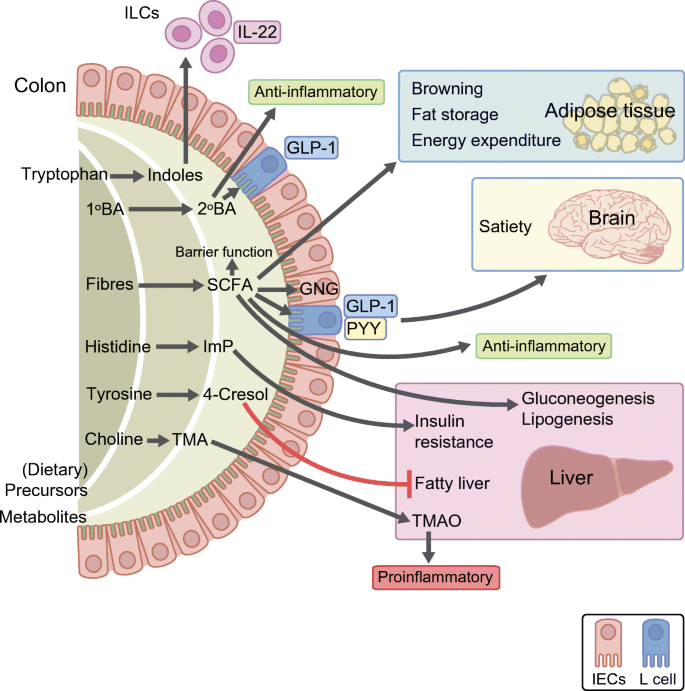
Why Are Vitamins Essential Metabolic Factors For Microbial Metabolism. Depeint et al2 confirmed the essential role of vitamins B 6 B 12 and folate in maintaining the mitochondrial one-carbon transfer cycles by regulating mitochondrial enzymes. Vitamin K is also critical for blood function. B vitamins are important cofactors and coenzymes in several metabolic pathways and it has been reported recently that B vitamins also play important roles in the maintenance of immune homeostasis 12 13. Microbiology with Diseases by Taxonomy 5th Edition Edit edition.

What people eat including vitamins and minerals affects their metabolism. These include vitamins amino acids short-chain fatty acids SCFAs and metabolites which are essential for the interconnected pathways of glycolysis the tricarboxylic acidKrebs cycle oxidative phosphorylation OXPHOS and amino acid and fatty acid metabolism. Some vitamins and minerals can help effective metabolism. The same authors also emphasized the essential role of the B vitamin family in maintaining. Problem 14SA from Chapter 5. There is emerging evidence that vitamin K may play a role in energy metabolism but currently the exact functions of vitamin K-dependent enzymes in energy metabolism remain elusive.
A metabolic process that breaks down carbohydrates and sugars through a series of reactions to either pyruvic acid or lactic acid and release energy for the body in the form of ATP Krebs Cycle second.
Faster metabolism contributes to the rapid burning of calories and it reduces the likelihood that a person will gain weight. - essential nutritional factors that animals need in trace amounts are often the precursors of required coenzymes. Prokaryotes on the other hand can metabolize a wide range of organic as well as inorganic matter from complex organic molecules like. Problem 14SA from Chapter 5. They do not affect the overall ΔG ΔH or equilibrium of the reaction. Problem 14SA from Chapter 5.